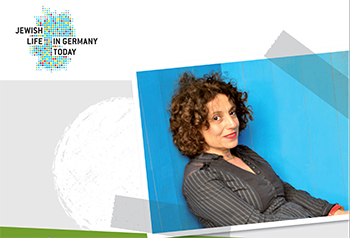Exhibition on "Jewish Life in Germany Today"

Plemmons Student Union on the ASU campus (263 Locust Street, Boone, NC)
September 12 until October 3, during regular building hours
(Mon.-Fri., 7am-11pm; Sat., 9am-11pm; Sun. 12pm-11pm)
From September 12 until October 3, ASU’s Center for Judaic, Holocaust and Peace Studies (CJHPS) hosts the traveling exhibition "Jewish Life in Germany Today." The exhibit will be on display on the first floor of Plemmons Student Union on the ASU campus (263 Locust Street, Boone, NC). The exhibit is open to the public during regular hours (Mon.-Fri., 7am-11pm; Sat., 9am-11pm; Sun. 12pm-11pm).
Some 100,000 Jews are currently registered within religious communities organized under the umbrella of the Central Committee of Jews in Germany. Berlin, the German capital, is home to the largest community of 10,000 members. In 1999, the Abraham Geiger College, the first liberal rabbinical seminary in Continental Europe since the Shoah, opened its door in response to the growing need for academic rabbinical and cantorial training. Compared to the 525,000 Jews who lived in Germany before the Holocaust, the numbers are still small, but the country is home to one of the fastest-growing Jewish communities in the world. At the same time, Germany is again the site of growing anti-Semitism that far exceeds the ranks of the Alternative for Germany. Also beyond the Central Committee of Jews in Germany, there are rapidly growing demands to establish the office of a special envoy on anti-Semitism based at the Federal Chancellery.
The exhibit – put together in Berlin on behest of the German Embassy in Washington, D.C. – brings together a cacophony of voices from Jews in the Berlin Republic, ranging from Michael Blumenthal, the Founding Director of the Jewish Museum in Berlin, to Adriana Altaras, an actor and stage director, who was involved in interviewing survivors for the Shoah Foundation. On panels and in audio-visual displays, it explores how Jews, living in a country whose political leadership once planned and perpetrated an unprecedented genocide against the Jewish people, confront and live with past and present challenges and how many of them remain committed to succeed against all odds.
For more information, contact the Center for Judaic, Holocaust and Peace Studies at holocaust@appstate.edu or call 828.262.2311. Organized by the Center, the exhibit's and program's co-sponsors include ASU's Departments of History, Philosophy and Religion, and Languages, Literatures, and Cultures, the German Studies Program, the Office of International Education and Development, the Temple of the High Country, the local chapter of Hillel, and the German Consulate General in Atlanta, GA.